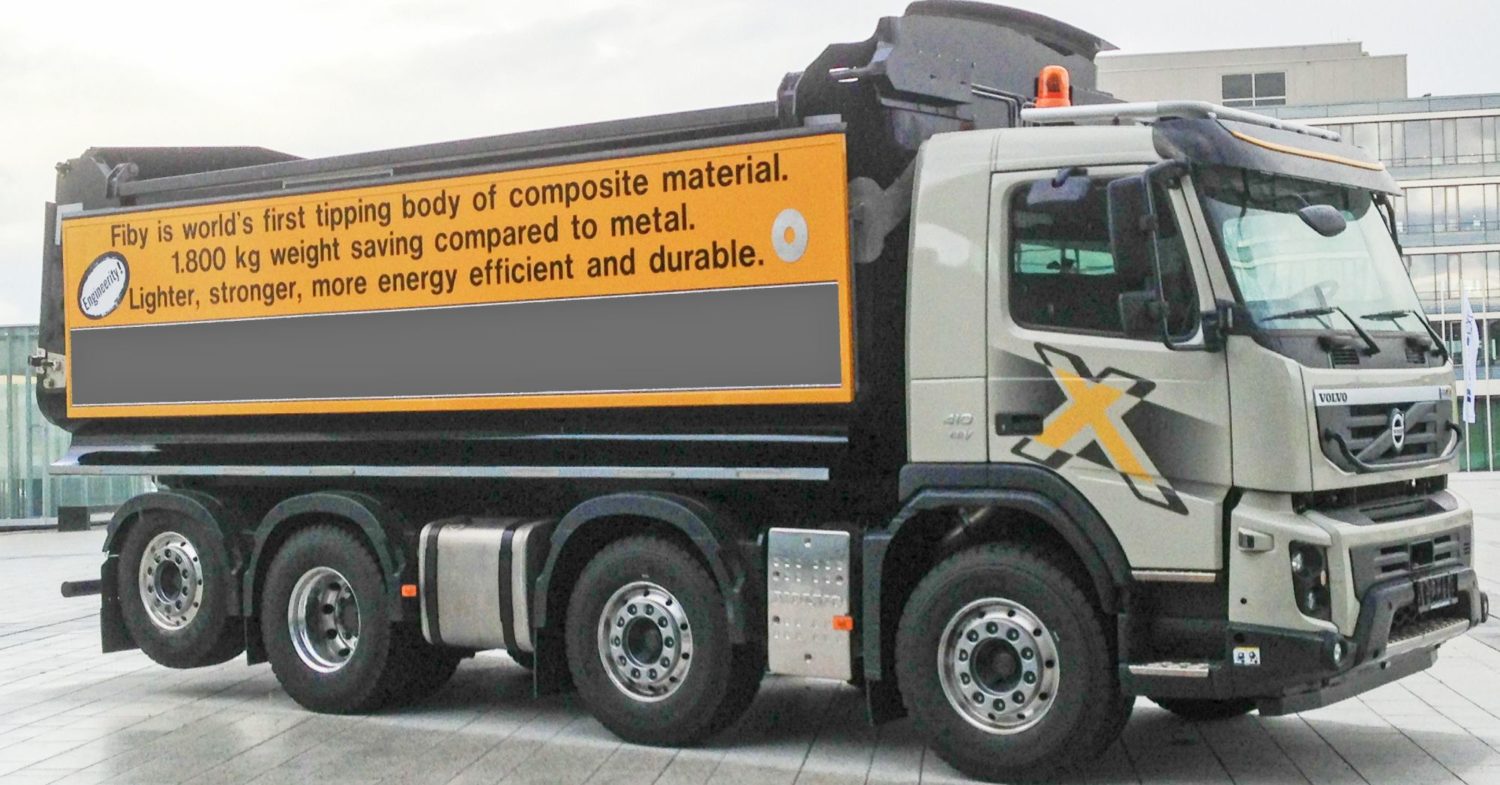Transportation, construction and civil engineering. All sectors where more and more use is being made of composite. The fiber-reinforced plastic appears to be a sustainable alternative to steel, aluminum or concrete, for example. And so there is a bright future for Fiby Products from Emmen.
The startup took place in Almelo in 2016. At the location of Composition Technology Centre (CTC), the company that co-founder Jos Ter Laak owned for many years. A year and a half later, the decision was made to move to Emmen. There, on the Karel Doormanstraat in the Bargermeer-Zuid business park, Fiby Products develops, manufactures and sells products made from natural and other strong fibers, so-called composites. And in particular, products that are mechanically loaded.
Advance
There is no shortage of growth opportunities for the Drenthe composites factory. In fact, composite is on the rise. Logical, because it is a strong, light and low-maintenance material. The lifespan of the fiber-reinforced plastic is almost equal to concrete and steel, thus offering legion of constructive application possibilities. Fiby Products focuses exclusively on applications in the transport market, construction and civil engineering. This choice for these markets has everything to do with the background of the initiators. For example, Ter Laak is a proven specialist in the field of composites. The other founders, Derk Jan Weeke and Martin Luinstra, have, in addition to a great interest in the possibilities of the material, earned their spurs in mechanical engineering and the transport market respectively.
Fiby tipper
What applications and products should we think of? 'For the transport sector, for example, we have developed the Fiby tipper, a body made entirely of composite,' explains Ter Laak. 'Its low weight makes the super-strong tipper ideal for use in road construction. Especially also because the tipper can withstand high temperatures of around 180°C for the transport of asphalt. In addition, we are getting more and more requests from the agribusiness and waste industry. Compared to steel, you quickly save about 30% in weight with composite, which allows a substantial extra load to be carried. With a quick payback period, a higher daily yield and substantial fuel savings as pleasant consequences.'

Corrosion-resistant
Another important advantage of composite is its corrosion resistance. The material is hardly affected by environmental influences. And that very fact makes composite very interesting for application in civil engineering. 'In that market we are therefore involved in many fine projects,' Ter Laak emphasizes. 'For example, we have already manufactured several composite lock gates for the province of Drenthe. Due to their wear resistance, the lock doors have a longer lifespan than conventional doors made of wood or steel. Moreover, they require less maintenance during that lifetime. But we are also working on the realization of friction purlins on behalf of Groningen Seaports (see box).'
As mentioned, Fiby Products is also setting its sights on the construction industry. A sector in which the integration of functions is becoming increasingly important. Here, too, the use of composite products and components can offer a solution. Ter Laak mentions a recent example:'Together with a contractor we developed a tiny house, for which we were responsible for the roof structure. Made of composite, of course. The gutter itself is attached to that construction. So it's one whole thing that, because of the properties of composite, you actually never have to replace.'
Bright future
Long before the official establishment of Fiby Products, in February 2016, the three entrepreneurs were already working together intensively on the possibilities of composite. This resulted in a number of successful projects, with a substantial increase in orders from home and abroad as a result. 'Everything indicates that the composites market will only continue to grow,' Ter Laak emphasizes. 'Hence our decision to combine our knowledge and expertise in a joint venture.' A bright future therefore glows for Fiby Products. In order to actually cash in on the growth opportunities, funding was needed. The NOM was approached. Investment Manager Klaas Kooistra's interest was quickly aroused. With great regularity sustainable concepts come to us,' he says. 'However, they often lack a convincing sales pitch. This was different in the case of Fiby Products. In addition to being sustainable, the products have a promising economic return.'
Scaling up
Especially with regard to the tippers and lock gates, expectations are high. Especially now that there are resources to further optimize the products and improve marketing. Not without reason does Fiby Products think it can attract 15 full-time employees in the short term. 'There is just a lot of potential in their product line,' continued of the number of clients. At the same time, the company is constantly coming up with and developing new applications. Now it is a matter of scaling up and growing. As NOM we are happy to contribute to finance that growth.'
'Groningen Seaports enjoys working with Fiby Products. An open and service-oriented organization that helps us realize friction purlins. A rubbing purlin is a beam fitted against the posts of a fender, a construction used to slow down ships as they approach a bridge. Usually, such a rubbing purlin is made of wood. Recently, in the form of a pilot, we opted to make the bottom two beams - the structure consists of several friction purlins - of composite at a breakwater in our management area. Composite is a strong material that can be reused and, unlike wood, does not rot. If the pilot succeeds, more wooden structures in our management area will undoubtedly be replaced by composite. The material fits completely into the circular economy. And therefore also in the philosophy of Groningen Seaports'.
Geert-Jan van Woggelum, project leader Groningen Seaports

